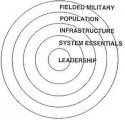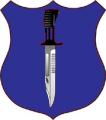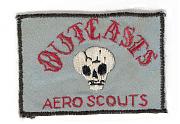I think something that has to be recognised is that missions require a terrain reference. If you were out to destroy an enemy Battle Group, then that would be predicated in terms of terrain. You cannot just chase them all over creation.
"Destroy all enemy within the Battle Group AO" - see boundaries. - Is a valid mission. If the enemy gets away (and he shouldn't), then new orders, more planning. Maybe very quick plans, but you can never predict enemy action












Bookmarks